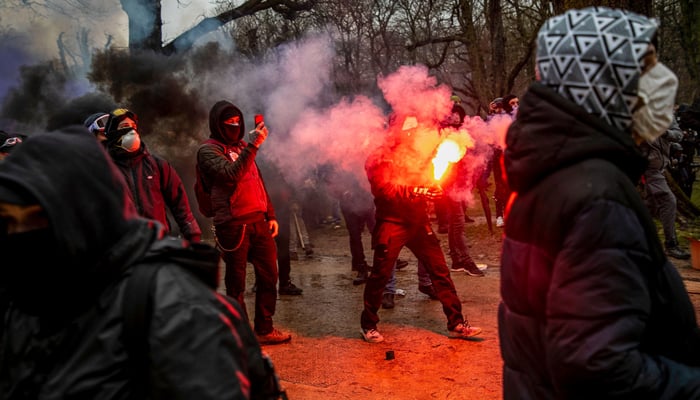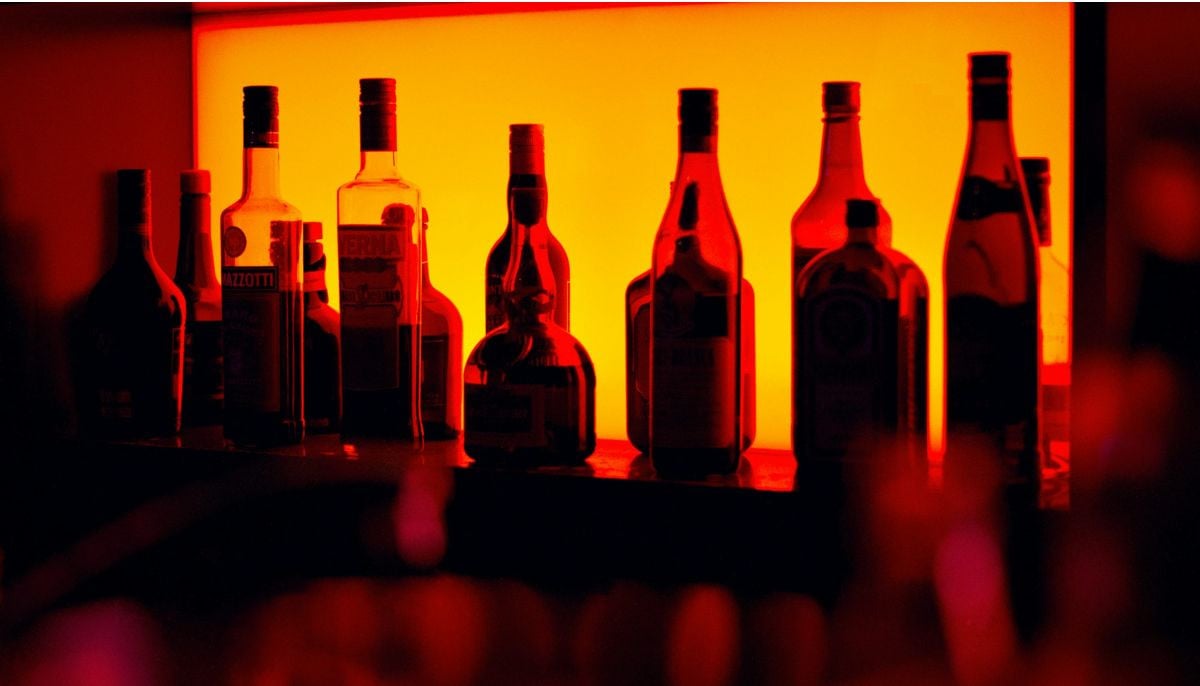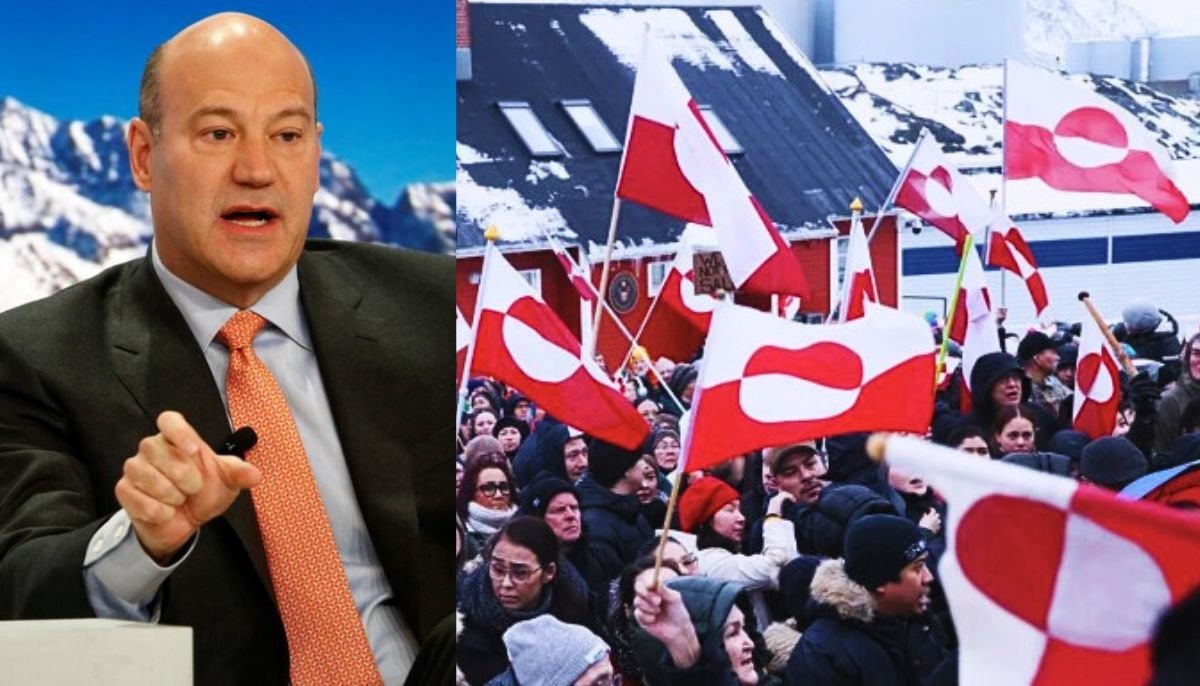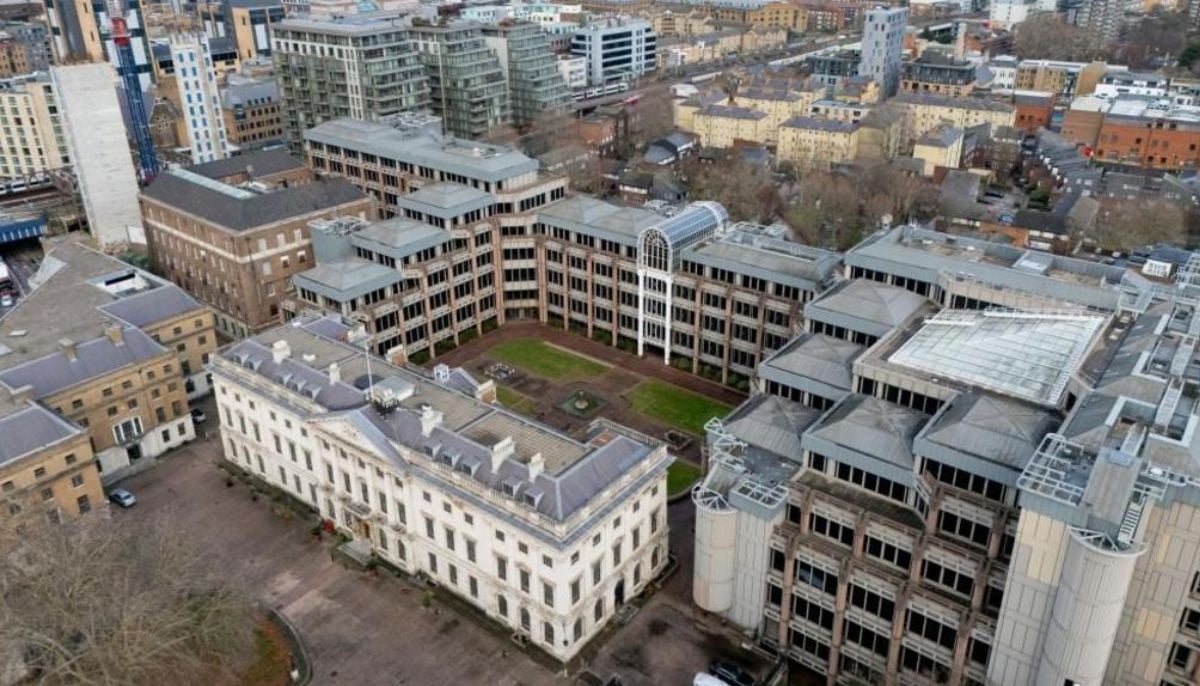'Health dictatorship': Clashes as tens of thousands protest COVID rules in Belgium
Police use water cannon and tear gas to push back protesters; around 50,000 people paraded through the Belgian capital
BRUSSELS: Police fired water cannon and tear gas on Sunday at stone-throwing protesters after tens of thousands of demonstrators marched through Brussels against COVID-19 rules.
Authorities estimated that around 50,000 people paraded through the Belgian capital — the largest in a spate of protests in the city over the past months.
Clashes broke out close to the headquarters of the European Union as police used water cannon and tear gas to push back protesters hurling paving stones and firecrackers.
News outlet RTL reported that masked demonstrators had smashed a glass entrance to the office of the EU's foreign policy agency.
The protest comes as the Omicron wave causes infections to reach record highs across Europe.
Protesters carried signs slamming Belgium Prime Minister Alexander De Croo and the COVID Safe pass required for entry into numerous venues.
Organisers including the World Wide Demonstration for Freedom and Europeans United for Freedom had called for people to come from other EU states.
Flags from Poland, the Netherlands, France and Romania could be seen in the crowd.
"What has been happening since 2020 has allowed people to wake up to corruption," said Francesca Fanara, who had travelled from Lille in northern France.
"I have come to march together."
"It's a health dictatorship," said Adolfo Barbosa from Portugal.
"It warms the heart to see these people here."
The EU's health agency said on Friday that Omicron had now become the dominant variant circulating in the bloc and some neighbouring countries.
Belgium has seen daily infections surge to over 60,000 in the past week in what authorities have called a "tsunami".
But the milder variant and high rate of vaccination — including people getting a third booster jab — means that health systems have not come under the same strain as during earlier waves.
De Croo on Friday announced that restaurants and bars could extend their opening hours — although nightclubs still remain closed.
Neighbouring France has said it will begin a gradual lifting of COVID restrictions from February 2 after authorities said there were "encouraging signs" that the wave of infections due to the Omicron variant is ebbing.
-
Japan unveils anti-ship missile with ‘barrel-roll’ evasion to outsmart defenses
-
Missouri couple ‘locked sons in chicken pen, shot them’ in shocking abuse case
-
Chinese ‘mega embassy’ wins UK approval in London ahead of Starmer’s China visit
-
From Chagos Islands to Greenland Trump flags national security risks: Here’s why
-
Church under investigation after anti-ICE protest interrupts worship
-
'I don't care': Trump shrugs off Nobel Prize talk as Greenland tensions escalate
-
Alarming: Rising shark attacks force Australia to close beaches
-
Three-year-old allegedly tortured, killed during exorcism in California church












